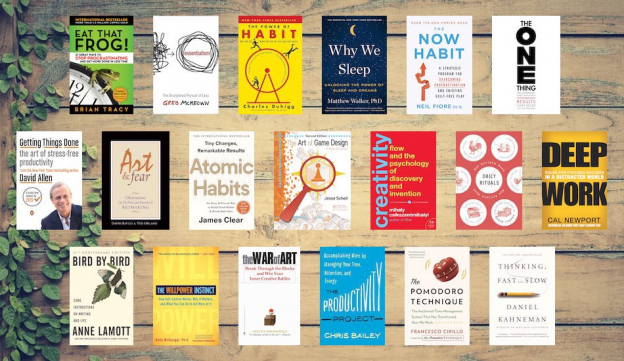We all feel pressure to do more with the time we have. There’s a deluge of books and articles on productivity – they promise to teach you to prioritize, be more efficient, and ultimately get more stuff done in a shorter time.
And all these “humblebrags” on social media showing off everyone’s achievements? These friends of yours that have just run a half-marathon or were invited to give a TED talk – surely they don’t waste their time as you do! (I’m guilty of using social media to post such stuff all time, too).
But no matter how much you blame social media, subconsciously, we also know that we could indeed achieve more – only if we had more focus, more willpower, and procrastinate less. That is true, too.
All of this makes us feel bad. So bad, in fact, that for some of us, the constant pursuit of maximum productivity results in burnout.
It happened to me earlier this year. After being an all-in founder/CEO for many years in a row and leading the company through many challenges along the way, including a truly tough (both emotionally and physically) pandemic year, I felt like I arrived at a full-fledged burnout. The fact that I always was a perfectionist, constantly striving to do more and optimize everything, had only made it worse.
I decided to go on sabbatical for a few months to recharge my batteries; our leadership team and investors were truly supportive. It went great, and I returned reinvigorated and ready to throw myself into work again with renewed enthusiasm.
In terms of work being done daily, those few months of my sabbatical were very unproductive, of course. In fact, during that time, I (almost) didn’t work at all. But nothing broke down in our business during that time, and the company continued to grow really well.
So, upon returning, I made a conscious decision – I’m not going to obsess about doing the maximum amount of useful tasks each day or about trying to eliminate all “unproductive” activities from my routine.
The truth is, we can’t operate at maximum productivity all the time or completely discard some routine stuff to focus on ever more “important” things.
There are minutes, hours, and days which are just mundane. My kids are at school; it’s raining outside; I’m in the office doing regular work or participating in a meeting that surely won’t lead to a fantastic breakthrough but is still needed.
At that particular moment, I can’t be on vacation in Iceland enjoying a beautiful vista; riding the fresh powder snow on Mt. Fuji on my snowboard, or devising a new grand strategy for our business.
Indeed, there are moments (and quite often, full days) when I’m not engaged in the most productive activities or squeezing the best out of my life.
And if you’re honest, you’ll admit that there are moments like this all the time in your life, too (OK, OK, not you, Elon).
And that’s OK. I’m not going to feel bad about this, and I believe you should not too.
I was checking on my email this morning. Surely enough, there were a few useless emails sent to our shared company mailbox. Not precisely spam, but utter time-wasters for me or anyone else on our team.
Moments later, when I was clicking the “Unsubscribe” button, I found myself thinking – is it the most productive thing a CEO should be doing at this particular moment?
On the other hand, I thought, at least ten of our teammates were members of this shared mailbox, so unsubscribing us all from the useless emails has some value, right?
But should I just hit “Delete” and save those precious seconds of mine to immediately focus on the things in my “Important/Urgent” quadrant and deliver a higher impact? Or should I first complete the “Three most important things for the day” before spending my time so awfully unproductively?
Perhaps I should establish a new business process and make someone from our team responsible for unsubscribing useless emails in this shared mailbox. Also, for some time already, I’ve been contemplating hiring an Executive Assistant. If I had one, I could grant them access to my email and task them with unsubscribing. Brilliant idea!
You know what? Fuck all that. I’ll just go ahead and spend those 30 “unproductive” seconds.
I will sift through the list of new messages in my inbox and unsubscribe from these useless email lists. That would be helpful, as I’ll be freeing future time and attention for myself and my teammates, though surely it is not the most high-impact activity for the CEO.
But I’m not going to feel guilty about that.
And when I don’t feel guilty for not being 200% productive all the time, I feel less stressed and less anxious. And when I’m calm, I can focus better, do more and get the best results long term. More often than not, I’ll be less productive than I could be, in theory, and sometimes I may be outright slacking; but then at other times, I’ll be in a flow, delivering truly highly impactful results.
That’s the subtle art of not being productive all the time.
–
Liked the article? Please share it and let me know what you think in the comments.
